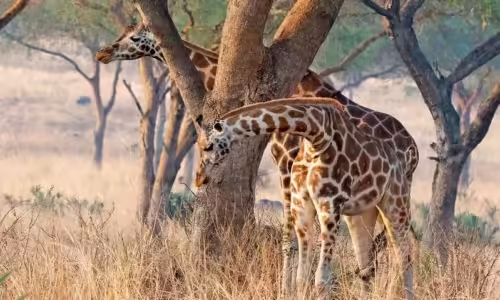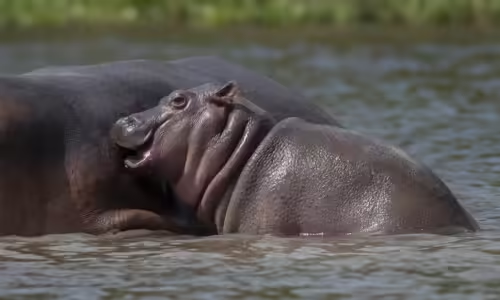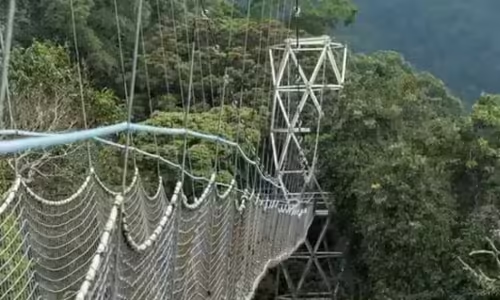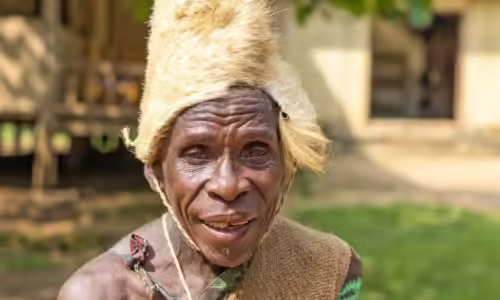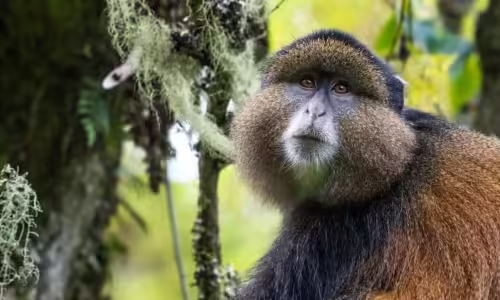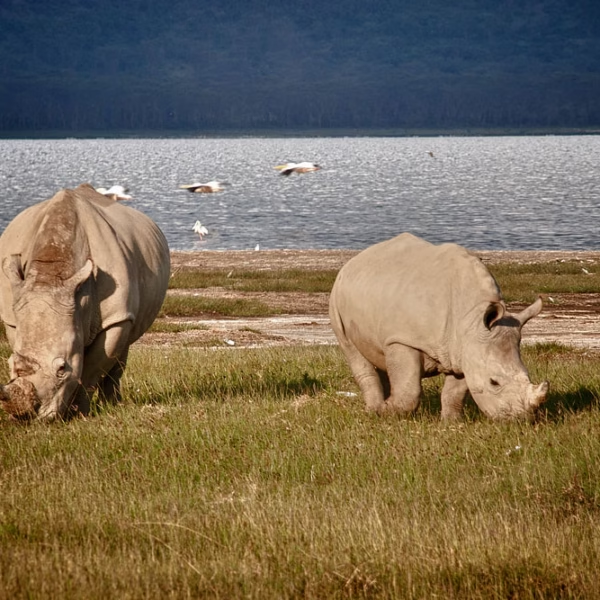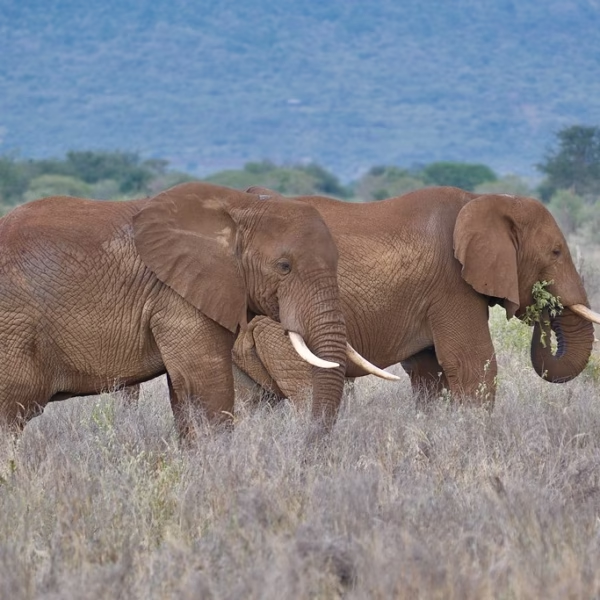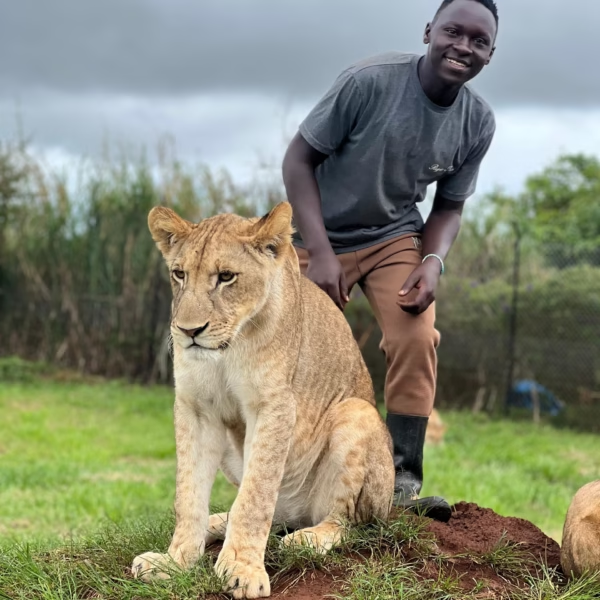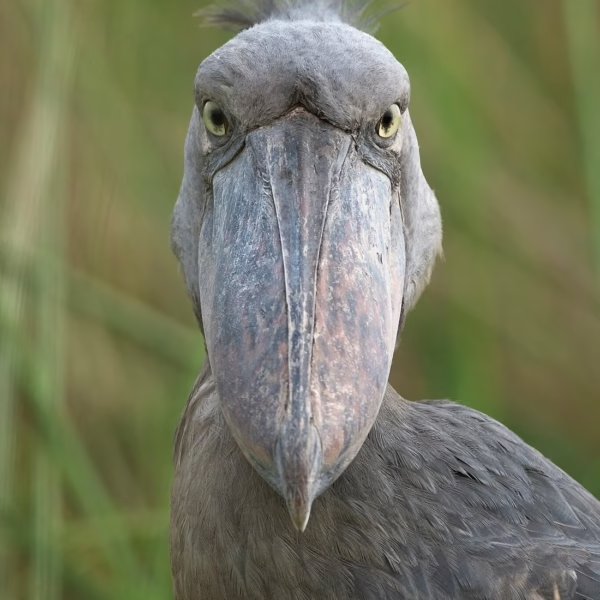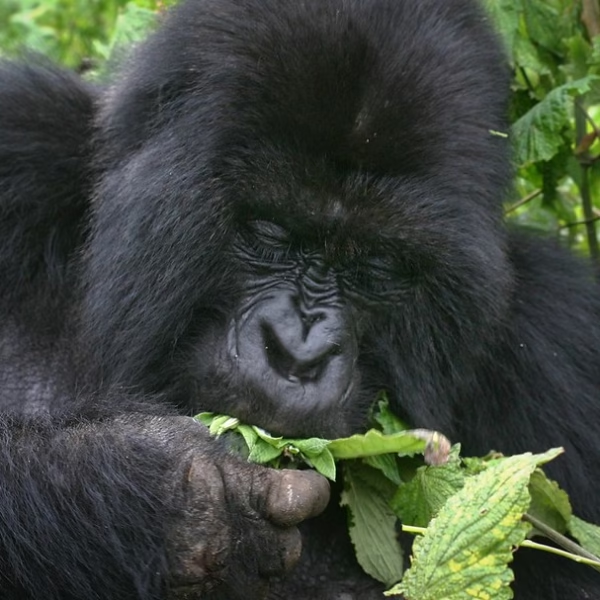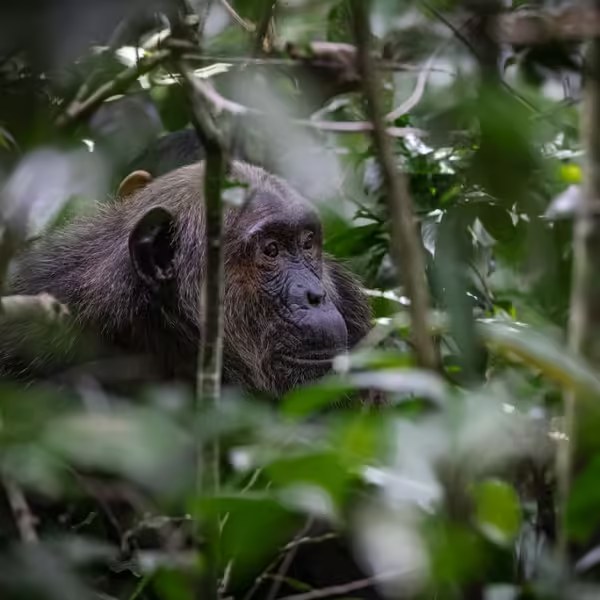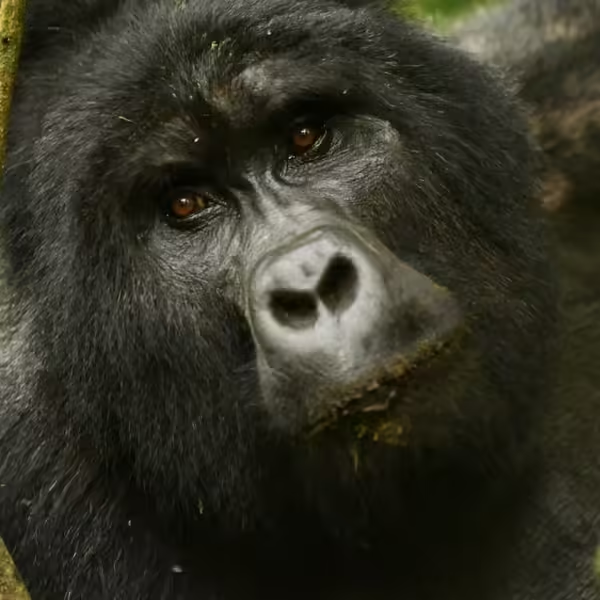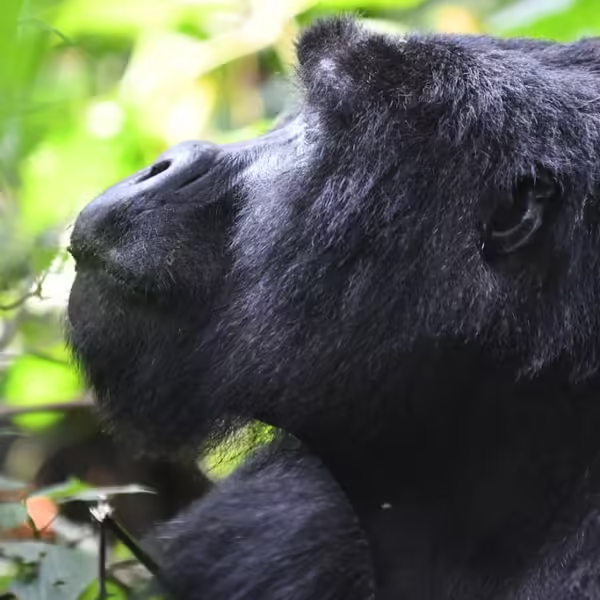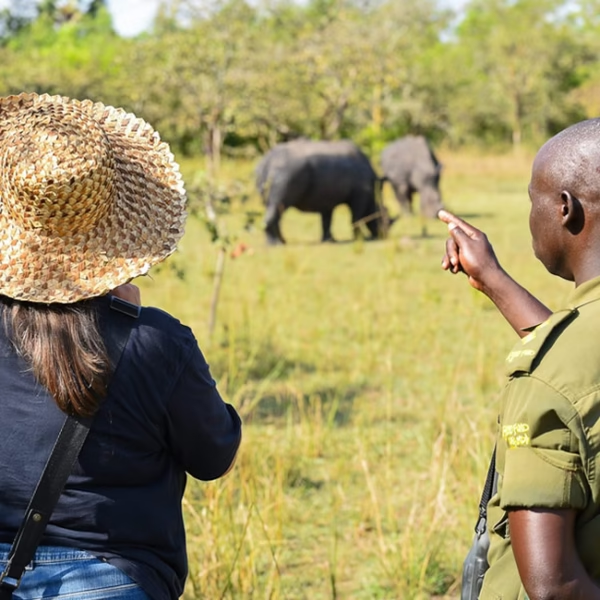
Overview
Lake Mburo National Park is nestled in the western region of Uganda, within the Kirihura district, adjacent to Mbarara district. It occupies an area of 260 sq km, making it the tiniest Savannah park in Uganda. Lake Mburo serves as the hub of excitement in the park, surrounded by 11 other captivating lakes in the vicinity. In a vast valley near the park, a captivating tale unfolds about two brothers, Kigarama and Mburo, who once called this enchanting place home. Kigarama experienced a vivid dream that revealed a looming threat awaiting them if they chose to remain in the valley. He confided his dream to Mburo, who was skeptical of his tale. Kigarama ventured to the hills, seeking refuge from the valley below. One day, the valley was engulfed by a surge of water that ultimately claimed Mburo’s life. The lake was called Mburo, and the hills nearby were known as Kigarama.
While the park may be modest in size compared to Lake Mburo Park and others, it boasts a breathtaking landscape featuring flat grasslands, rolling hills, forests, bush thickets, rocky outcrops, lakes, and swamps. The removal of elephants from the park has resulted in the expansion of expansive woodlands throughout the area. Lake Mburo boasts wildlife species that are seldom encountered in other parks of Uganda. Among the fascinating inhabitants are the Eland, Klipspringer, Impala, and a remarkable population of 5,000 Zebras, along with the intriguing giant bush rats. Lake Mburo National Park is an incredible destination for those eager to encounter leopards in Uganda, thanks to the impressive density of these magnificent creatures in the area.
Lake Mburo National Park is nestled in the rain shadow between the Rwenzori Mountains and Lake Victoria, boasting an average annual rainfall of 798 mm. It is situated perfectly along a highway that connects the capital city Kampala to other significant national parks and popular tourist destinations such as Queen Elizabeth National Park and Lake Bunyonyi in western Uganda. This prime spot draws in travelers eager to take a break on their journeys to encounter gorillas in Bwindi or chimpanzees in Kibale Forest Park. The nearby location to Kampala makes it the most convenient game park for anyone eager to experience Uganda’s wildlife following a seminar or conference in the capital.
Lake Mburo National Park of Uganda has experienced a challenging history that resulted in the significant decline of wildlife due to poaching and the encroachment of local tribes in the surrounding area. The park began its journey as a controlled hunting area in 1933, evolving into a game reserve by 1963. In 1983, the reserve transformed into a game park, aiming to displace the local Banyankole pastoralists who were alleged to be backing government rebels led by the current president Yoweri Kaguta Museveni, opposing the regime of Milton Obote. After the fall of the Obote regime, the pastoralists stormed into Lake Mburo National Park in Uganda, reclaiming the area and driving away the park staff. The park remained diminished, as the new government could only recover a portion of the land, wary of upsetting the community.
The landscape has transformed, with the Uganda Wildlife Authority now collaborating closely with the local tribes surrounding the park to safeguard its magnificent wildlife. Lake Mburo National Park stands as a remarkable illustration of the harmonious relationship between local communities and wildlife in Uganda. The partnership between the government authority and the local community has resulted in the thrilling reintroduction of lions, along with giraffes, elands, baboons, and a variety of other wildlife. The park serves as a sanctuary for lions, dedicated to their conservation.
Guide To The Safari Park ( Destination )
Exciting experiences in Lake Mburo National Park
Guests at the park are presented with a myriad of exciting options for activities, as you will discover through our 3 Days Wildlife Safari in Lake Mburo National Park package. In addition to lions, the park is home to a variety of animals including buffalo, eland, hippos, impala, jackals, leopards, oribi, reedbuck, topi, warthog, waterbucks, zebras, and the recently reintroduced giraffes from Murchison Falls National Park. To step into the park, an entrance fee must be paid. 20% of the fee goes towards supporting local community initiatives such as clinics, schools, and infrastructure projects. The primary experiences in Lake Mburo include game drives, both at night and during the day, walking safaris and nature walks, sport fishing, horseback riding, boat trips, and birdwatching, among other exciting options. A tour operator can guide you on the most exciting ways to enjoy your time at the park and assist with booking each of the following activities:-
Birdwatching in Lake Mburo National Park: Lake Mburo is a premier destination for bird enthusiasts in Uganda. Exploring the birdlife in Lake Mburo unfolds primarily along the enchanting swamps of Warukiri and Miriti. Among the fascinating species are the African grey hornbill, barefaced go-away bird, black-billed barbet, blue-napped mousebird, brown parrot, common quails, crested francolin, emerald spotted wood dove, greenwood hoopoe, lilac-breasted roller, Nubian woodpecker, rednecked spur, trilling cisticola, white-winged warbler, and the shoebill stork. At the Rwonyo camp, bird enthusiasts can encounter a variety of fascinating species, including the African-wattled plover Rufous, Black Bellied Bustard, Coqui francolin, Flappet larks, red-necked spur fowl, Rufous chested Swallow, southern Red Bishop, Temminck’s courser, and yellow-throated long claw. Lake Mburo offers an exciting opportunity to observe the elusive white-backed heron and the African finfoot.
Guided Nature Walks: In contrast to the other park in Uganda, you can explore any area of the park with the arrangement and guidance of an armed guard from the Uganda Wildlife Authority. During the nature walk, you will encounter a variety of antelopes, zebras, buffaloes, and giraffes as they graze in their natural habitat. Keep an eye out for the butterflies and birds as well. As you stroll in the morning, you may come across hyenas making their way back to their dens after a night of hunting or hippos moving towards the water after a night of grazing on land.
The Lakeside Track: Connected to the nature walk is the journey along the well-established Lakeside Track in the southern region of Lake Mburo. This track invites visitors to encounter bush duiker and appreciate the lush woodland. The trail ascends to the Kigarama summit, offering breathtaking vistas of Lake Mburo and the expansive national park beyond.
Fishing: The many lakes and locations such as Mazinga present exciting chances to catch species like Tilapia, Haplochromes, mud fish, lung fish, and more. Mazinga fishing spot is nestled in a secure area of Lake Mburo, free from crocodiles and hippos. Guests can engage in sport fishing and coordinate with someone to prepare the catch back at their lodge. There are shaded spots near the fishing points that provide a perfect place to unwind between fishing sessions. Maseke Adventure Co. is ready to assist in organizing gear, including hooks and bait, and securing fishing licenses for adventurers before they embark on their safari journey.
Day and Night Game Drives: Experience the thrill of game drives in Lake Mburo National Park, where you can encounter a variety of animals and birds that inhabit this vibrant ecosystem. The game drives are guided by a skilled ranger from the Uganda Wild Life Authority (UWA), who expertly points out the various species of animals and birds along the way. The “leopard rock” is an exciting spot for those eager to catch a glimpse of leopards during the night safari or at dawn. Hyenas roam the park, though their numbers are not as plentiful as in some of Uganda’s other prominent game parks. The night game drives last for 2 hours and offer an excellent opportunity to encounter genet, leopards, bush pigs, mongooses, and white-tailed mongooses.
A boat cruise along Lake Mburo reveals the stunning beauty of the Park in every wave and ripple. This is especially true in the dry season when a variety of animals gather for a refreshing drink. On the boat cruise, guests can encounter zebras, antelopes, crocodiles, hippos, otters, and buffaloes in their natural habitat. The most frequently spotted birds during the boat cruise are African Fish Eagles, Blue-headed Weavers, Cormorants, Green-necked Doves, Hammerkops, Herons, Malachite Kingfishers, Pelicans, Pied Kingfishers, Rufous Long-tailed Starlings, and Shoebill Storks. The length of the boat cruise is flexible and can be discussed further.
The Rubanga Forest Walk is typically organized ahead of time by the Uganda Wildlife Authority and begins from the picturesque western shores of Lake Mburo. Rubanga forest offers an exciting opportunity for bird enthusiasts, with the chance to encounter over 42 species while exploring its trails. While exploring Rubanga forest, keep an eye out for fascinating tree species such as Acacia, Fig Trees, Markhamia, Palm, and Platycaluz, among others. The avian inhabitants feature the double-toothed barbet, green pigeon, Grey-backed cameroptera, harrier hawk, narina trogon, and the highly coveted Shoebill Stork.
The Salt Lick: Join an armed ranger for an exciting guided walk to the Salt Lick, where you can witness animals as they enjoy the salty soil in this captivating area. Observation points have been established by the Uganda Wildlife Authority, providing visitors with the opportunity to witness a variety of animal species, such as zebras and antelopes, as they gather to lick the salt. The experience typically kicks off in the morning and lasts no longer than two hours.
Horseback Riding: Lake Mburo offers a unique opportunity for visitors to experience the thrill of observing wildlife while riding on horseback. Kabwoya wildlife reserve along Lake Albert is another destination for exhilarating horse riding safaris in Uganda. Horseback safaris offer an exhilarating opportunity for visitors to connect intimately with the wildlife. The horses seem to have a certain familiarity to the Zebras and even the timid Eland. Though they maintain their distance, they do not flee as they do when safari cars approach.
Exploring the Igongo Cultural Center: The Igongo Cultural Center is situated just 4 kilometers from the Sanga gate. The Banyakitara utilize the Center to highlight their rich cultural heritage and vibrant traditions. The Banyakitara tribes comprise the Bakiga, Banyoro, Batooro, and Banyankole. There is a small museum brimming with local art crafts and items that celebrate their ancient cultural traditions. Visitors can embark on a journey to discover the rich history and vibrant way of life of the tribes, guided by knowledgeable locals. The traditional huts crafted from grass and the local cuisine are prominently displayed alongside a variety of other intriguing items. Visitors have the opportunity to acquire unique souvenirs such as locally crafted items and various art pieces.
For those arriving by public transport, a walking safari around the stunning Kazuma Hill awaits, offering an exhilarating experience. A walking safari will elevate your experience in Uganda, providing a unique and extraordinary opportunity. The Kazuma Hil provides an ideal vantage point to discover the stunning sights within the park, including the 14 Lakes, undulating hills, and the enchanting surroundings. Strolling through the park is not allowed, particularly due to the presence of buffaloes and lions. Danger can also arise from hyenas and hippos that venture out to graze near the Lakes after dark.
Quad Biking to Spot Game: With the rarity of big cats, biking offers an exhilarating way to encounter wildlife in Lake Mburo National Park. The Quad bike rides immerse you in the heart of grazing zebra and the surrounding landscapes, where you can witness the local Banyankole tribe tending to their majestic long-horned Ankole cattle. Quad Biking safaris are exceptional as they bring you closer to the wild. Adventurers should bring along water and snacks during their Quad biking safari to stay energized and refreshed.
Note: While tourism activities take place year-round, the ideal time to explore Lake Mburo National Park is during the dry season. The paths in the park transform into a challenging and muddy journey during the rainy season.
Ways to get to Lake Mburo National Park
Lake Mburo National Park, nestled between Mbarara and Kampala, offers easy access from either location. The journey from Kampala City to the park headquarters takes approximately 4 hours by car. Approximately 211 km from Kampala along the Kampala-Mbarara highway, a signpost on the left directs you to the Nshara gate of the park.
Traveling from the direction of Mbarara, you will find that it is just a short 47km drive to the park headquarters. As you arrive at Sanga, keep an eye out for the park signpost that points you to the right. The journey from Sanga to the Rweshsbeshebe Gate of the park spans 12 kilometers. The journey from Sanga to the park gate is an unpaved path that can become quite challenging to navigate during the rainy season without a reliable four-wheel drive vehicle. No matter which way travelers intend to go, public transport only halts at the main highway. Patience is required as you await a vehicle to journey from the main road to the main gate.
Stay options in Lake Mburo National Park
As with the other parks, the accommodation options in Lake Mburo are categorized into three main types – Budget, mid-range, and Luxury. Stay options can be found within the game park and in the nearby towns of Mbarara and Lyantonde. At the Rwonyo park headquarters, you can find 3 public campsites alongside luxurious accommodations such as the Manatana Luxury tented camp and Mihingo Lodge, which we will explore in greater detail in the upcoming paragraphs:
Accommodation in Lake Mburo National Park: Mantana tented camp is a luxurious haven that has stood the test of time, providing dependable services that draw visitors back year after year. There are 9 tents elevated on wooden platforms, offering breathtaking vistas of the game park. The camp harnesses solar energy, and the rooms come equipped with showers. One can catch glimpses of the lakes and wildlife as they wander through the park while enjoying a meal or unwinding on the room verandahs. The dining experience offers a delightful mix of local and international dishes. There is a cozy sitting area, a lively bar, and a restaurant where you can enjoy refreshing cold drinks as the evening unfolds.
The Arcadia Cottages: This mid-range lodge is part of the Arcadia group of lodges and is situated near the beautiful shores of Lake Mburo, inviting exploration and excitement. The lodge presents an inviting atmosphere that beckons exploration and excitement around every corner. Its proximity to Rwonyo, the tourism hub of the park, makes it an excellent option for those eager to embark on game drives, boat cruises, and nature walks. Among the offerings are a restaurant, bar, and inviting open fires. The hotel offers a variety of accommodations, including self-contained rooms and charming cottages, all equipped with double beds, WiFi, and television.
Rwonyo Rest Camp is an affordable lodge nestled within the park, proudly managed by the Uganda Wildlife Authority (UWA). The lodge features a charming grass thatched roof and is built with wood and other local materials. Guests have the chance to encounter various wild animals that wander close to the camp during their stay at the lodge. The lodge features bandas and tented rooms elevated on wooden platforms. The bandanas offer a more budget-friendly option with communal showers, whereas the tented rooms provide the luxury of private showers. Visitors who arrive with their own tents are provided with a designated area to set them up.
Lake Mburo Safari Lodge: This is yet another fantastic budget lodge that provides excellent value and seclusion, enabling guests to immerse themselves in the wonders of the African wilderness. This lodge attracts numerous visitors with its affordable room rates. The lodge features charming cottages with grass thatched roofs, perfect for families and honeymooners alike. The rooms are fully equipped and adorned with locally crafted furniture, wardrobes, king-sized beds, mosquito nets, showers, and bathtubs. The honeymoon cottage features a kitchen, a fridge, and a coffee maker, perfect for your cozy getaway. The deck provides a perfect spot to unwind between thrilling escapades in the park. Delicious meals and refreshing drinks await you at the main bar and the restaurant, which also offers delightful options for vegetarians.
Eagle’s Nest Lodge: This budget lodge is perched on a hill overlooking Lake Mburo Park. The hill offers a breathtaking panorama of the park, inviting exploration and discovery. As you enjoy your dinner, the sounds of the bush come alive around you—roaring lions, chirping crickets, and the calls of various night creatures fill the air. The lodge features 12 tents adorned with thatched roofs and sturdy stone floors. The tents come equipped with private showers, Eco-toilets, and a verandah that offers stunning views of the wildlife during the morning and late afternoon. There is a bar and a restaurant, but meals can also be enjoyed in the rooms.
Hotels and Lodges in Lake Mburo National Park: Mihingo Lodge is a luxurious retreat established in 2007 by a team of Germans. The 10 tented rooms are crafted from local materials and rest on wooden platforms adorned with tidy grass. The rooms come equipped with private bathrooms, hot showers, and a charming verandah. In addition, you will find a swimming pool and a tennis court waiting for you. Care for little ones and meals tailored for children can be organized for guests with babies. The lodge organizes exhilarating horseback tours beyond the national park, exploring the breathtaking valleys surrounding Lake Kacheera. There are 4 ponies and 7 horses ready for exploration. To ensure an intimate experience, participation in each session is limited to just 6 individuals.
Lodges in Lake Mburo National Park: Rwakobo Rock is a mid-range family hotel perched at the park’s edge, inviting guests to explore the wonders that lie beyond its doors. The hotel features Eco-friendly accommodations with 9 cottages perfect for secluded getaways, all while providing stunning vistas of the mountains and the wildlife—bushbucks, warthogs, impala, and zebras—gathering at the water hole. The cottages feature showers heated by the sun, illuminating solar lights, WiFi access, and convenient charging facilities. The restaurant offers a delightful array of local and international dishes, featuring unique options for vegetarians. The bar offers a variety of beverages, including soft drinks and a selection of alcoholic options like wines, local beer, and spirits. Those who prefer to abstain from alcohol can enjoy coffee, tea, or refreshing water. The main hotel area offers charging facilities and WiFi for your convenience.

